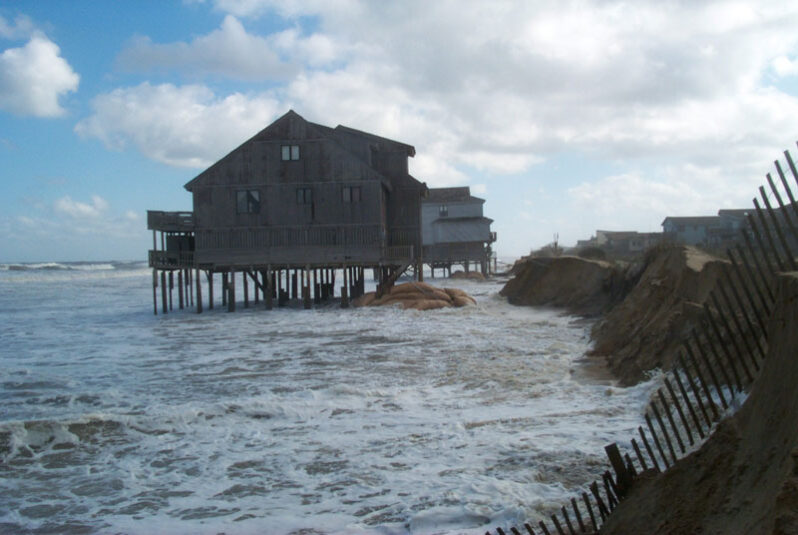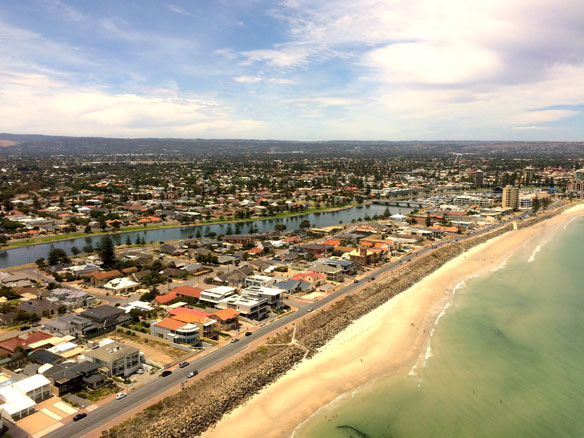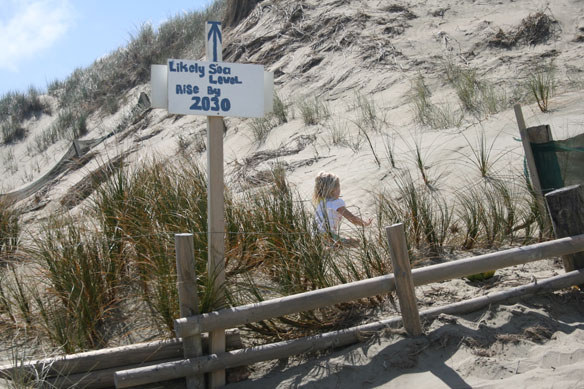Luxury homes in Australia are falling into the ocean due to coastal erosion

In a coastal neighborhood in Australia’s New South Wales state, luxury beachfront homes are in danger of collapsing into the ocean.
Rising Seas Threaten an American Institution: The 30-Year Mortgage

Up and down the coastline, rising seas and climate change are transforming a fixture of American homeownership that dates back generations: the classic 30-year mortgage.
Millions of Americans think they’re safe from flood waters. They aren’t.

A row of cottages once stood where these two remaining buildings were located. Their removal is in the pattern of a disorganized and costly retreat forced by the sea, instead of a reasoned, orderly moving back in response to the sea-level rise. Severe coastal erosion, North Carolina. Photo courtesy of: © Andy Coburn Excerpts; A […]
We need to adapt fast to erosion and rising sea levels to manage coastal risks

The impact of rising sea levels and coastal erosion will see shorelines retreat steadily and provide major challenges for planning authorities, according to a new research.
Why so hot so early in the summer?

Alarmingly, though, the summer solstice this year saw one rather unexpected region hit an all-time high: Verkhoyansk, Russia—north of the Arctic Circle—recorded a temperature of 100.4°F, the hottest it’s been there since 1885.
Historic Michigan tribal burial ground threatened by coastal erosion

In June of 1662, hundreds of Native Americans from the Iroquois nation were killed on the shore of Lake Superior by local Chippewa defending their land. Now, 357 years later, the burial site of local natives killed in that battle is being threatened by an eroding shoreline fueled by the rising water levels of Lake Superior.
Sea level rise will see 40pc of Australia’s beaches lost, predicts new study

Beaches are a part of Australian life, and new research says that we’re going to lose about 40 per cent of Australia’s beaches over the next 80 years.
Global Climate Report – May 2020: Earth ties record high heat May reading

The global land and ocean surface temperature for May 2020 tied with 2016 as the highest in the 141-year record at 0.95°C (1.71°F) above the 20th century average of 14.8°C (58.6°F). The 10 warmest Mays have all occurred since 1998
Fixed for Failure: How flood insurance keeps dangerous homes standing in SC

Flooding caused by rising tides, hurricane-force winds and rain deluges, has left a glut of damaged properties in South Carolina’s real estate market, specifically in cities along the coast.
